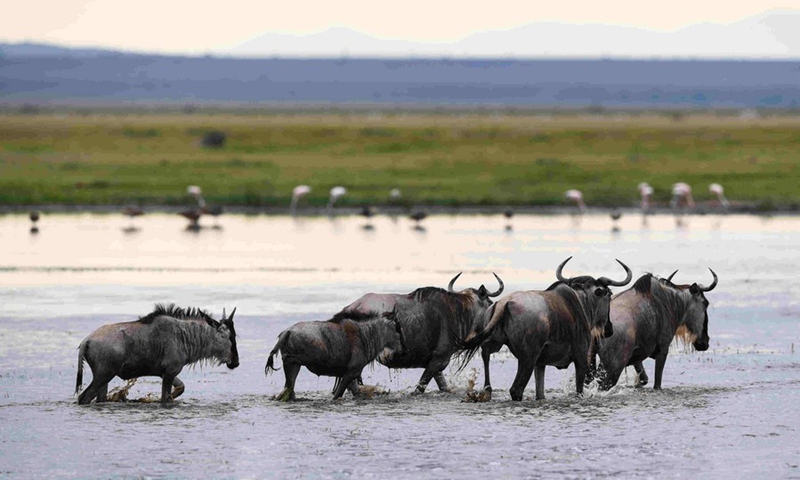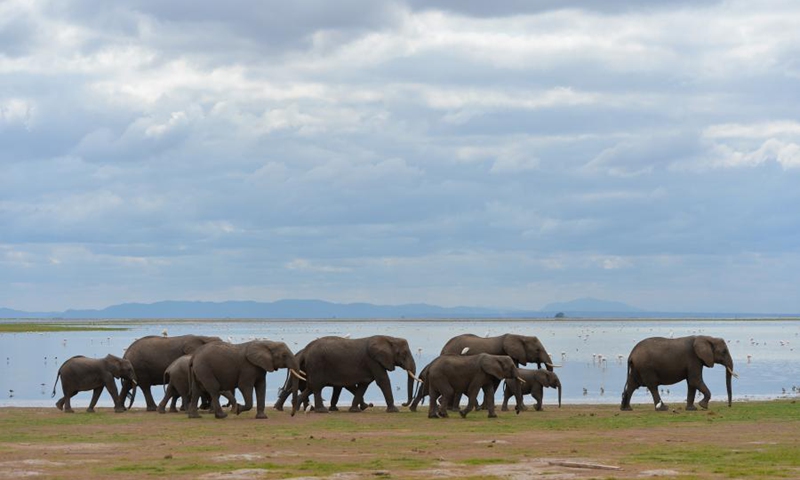
A flock of gnus are seen in Amboseli National Park, Kenya, June 16, 2019.(Photo: Xinhua)

Elephants walk by a lake in Amboseli National Park, Kenya, June 15, 2019.(Photo: Xinhua)
Kenya on Friday launched a three-month national wildlife census whose results will inform retooling of conservation programs for iconic species grappling with climatic and human-induced threats.
Cabinet Secretary for Tourism and Wildlife Najib Balala said the first-ever wildlife census in Kenya will enable the government to obtain accurate data on wildlife resources including giant land mammals, carnivores and marine life.
"The census will utilize globally recognized methodologies to obtain accurate data on wildlife resources in the country and mitigate future threats to their survival," Balala said during the televised census launch at Shimba Hills, in the coastal county of Kwale.
He said the census, which will utilize state-of-the-art satellite technology, has been funded by the government to the tune of 250 million shillings (about 2.34 million U.S. dollars).
It will strengthen evidence-based management of iconic species that are an integral part of Kenyan heritage besides contributing to national coffers through tourism, Balala said.
"We want precise data on wildlife population in the country to guide effective conservation of species amid challenges like climate change, changing land-use practices, and competition with agriculture," he said.
Data-driven interventions are key to minimizing human-wildlife conflicts that have emerged as a grave threat to the survival of iconic species like elephants, rhinos, and lions, Balala said.
Census data will help Kenya review the existing conservation models, strike a balance between livelihoods and conservation, he said, noting that the census will be carried out in protected areas like forests, marine ecosystems, and rivers.
Fred Segor, principal secretary at the State Department of Wildlife, said the census will help determine the exact population of wildlife species, their distribution, economic value, and emerging threats.
The government is required by law to regularly update wildlife population data as a means to strengthen conservation efforts, he said.
According to Kenya Wildlife Service, the census will count terrestrial, freshwater, marine mammals, key birds, endangered primates and reptiles in the 47 counties across the country, whose rich wildlife resource is one of its key economic pillars.
